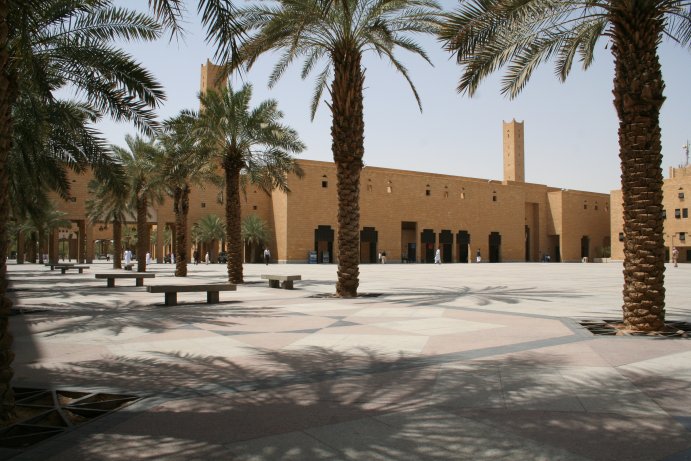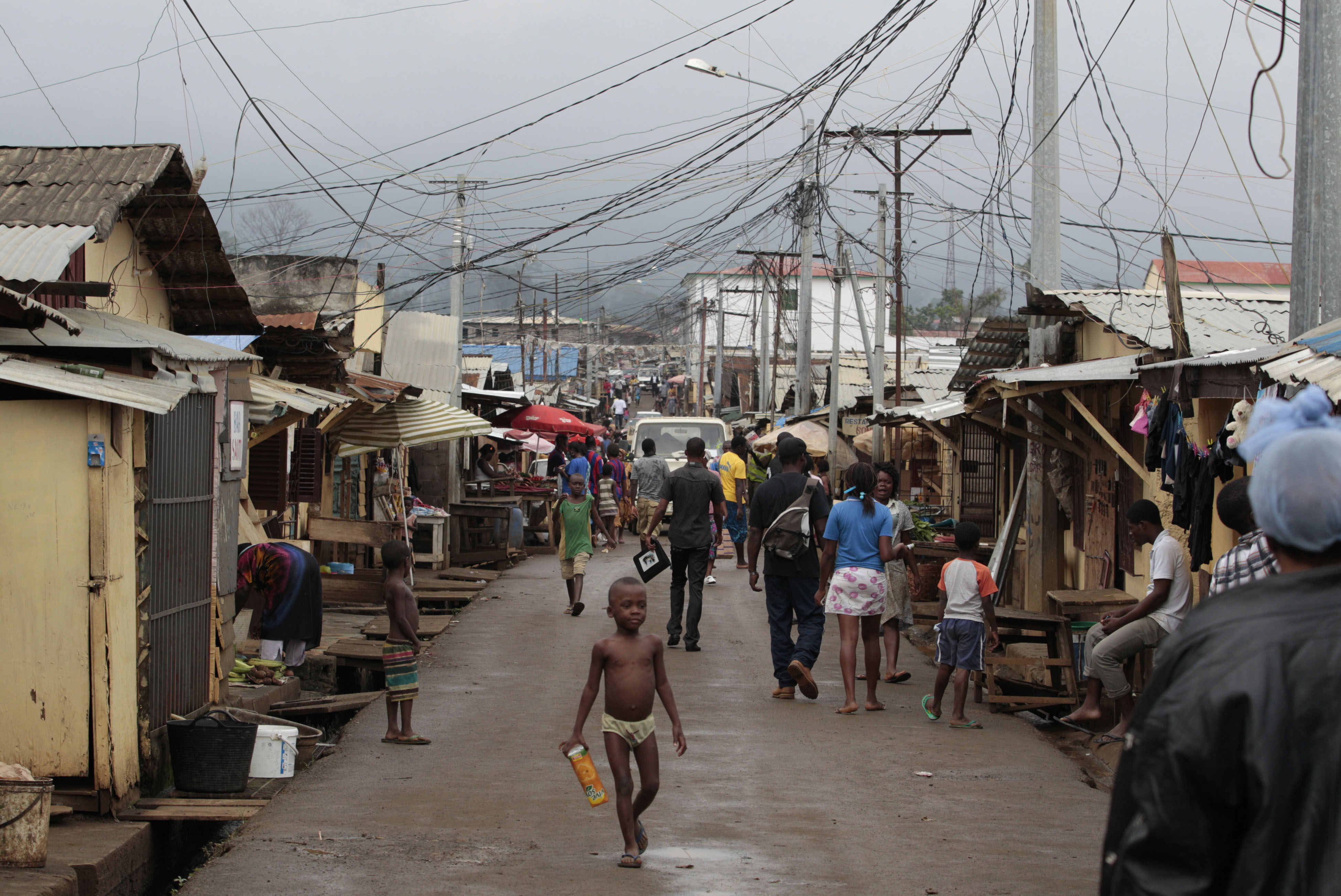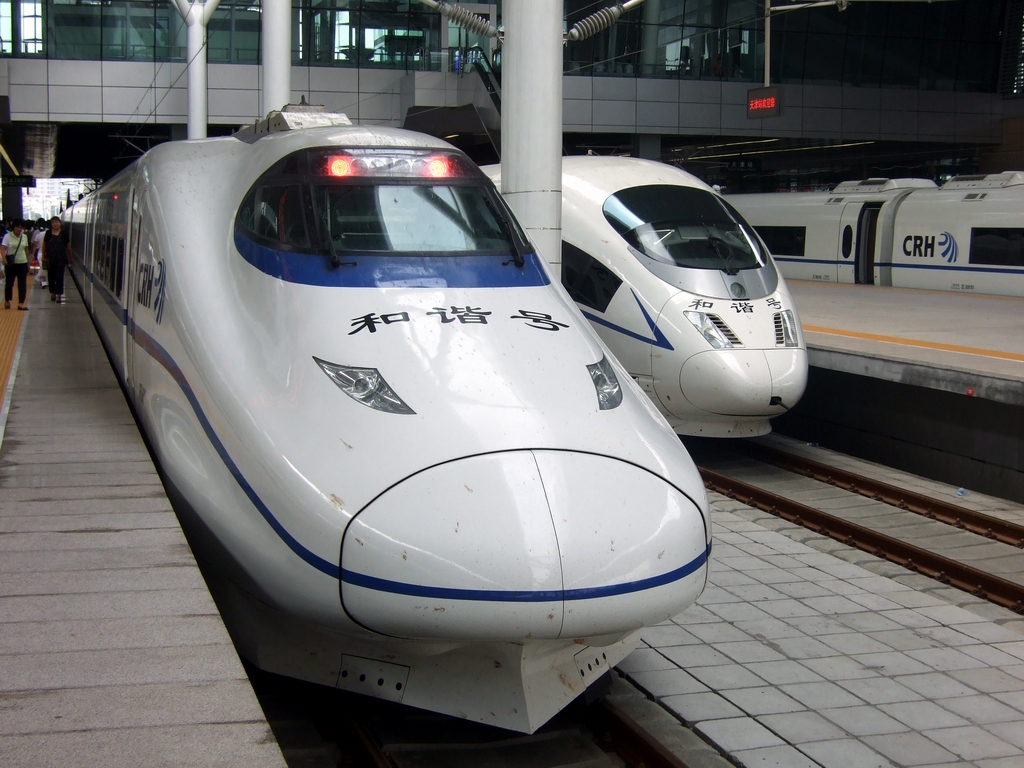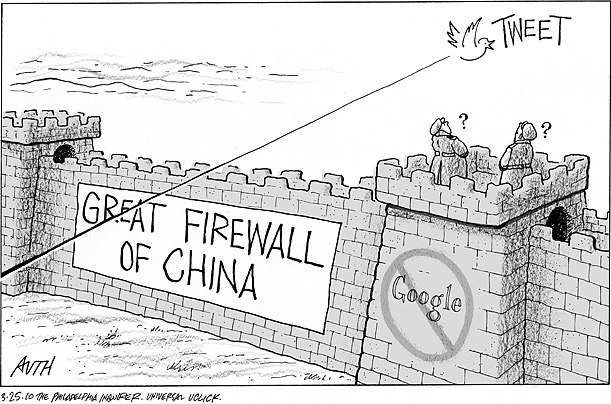Few would debate that over the last few decades there has been a trend towards more representative democracy and respect of human rights around the world. There are a few countries, however, which seem to be simply unable to free themselves from the grip of complete, unabashed tyranny.
The five countries in this list consistently come last in all global indexes for respect of human rights, freedom of the press, democracy and governmental transparency. They are all places which make China seem like a democratic, open and transparent sort of country. Two of them are located in Africa, two in Asia, and one in the Middle East (technically also in Asia). One is an absolute monarchy, and the other four are ruled by leaders who have been in power for decades (Eritrea and Equatorial Guinea) or are the sons of former leaders (Turkmenistan and North Korea). In what must be a cruel joke, four of these countries also have the word "democracy" enshrined either in the name of the country or in the name of the ruling party.
1)
Eritrea
When
Eritrea won its independence from Ethiopia after a
30 year war in 1991, there were high hopes for the country. The former Italian colony, located on a strategically important strip of the Red Sea and rich in mineral resources, seemed like it might become the success story of troubled East Africa. The former leader of the liberation struggle Isaias Afwerki immediately became head of state. He has remained in power ever since.
Under his watch Eritrea has turned into possibly the most repressive state in the whole of Africa, which is really quite a feat, although not of the kind which his people were hoping for. The 1997 constitution proclaims the country to be a unicameral parliamentary democracy, but it has never been implemented. Eritrea is in actuality a one-party state. The one party in question is called the "People's Front for Democracy and Justice" (well of course it is).
Human rights in Eritrea simply don't exist. Freedom of association and worship are severely curtailed. The only religions allowed are the four ones registered with the government, in other words Catholicism, Eritrean Orthodox Christianity, Lutheranism and Sunni Islam. All other religions, including all the various protestant denominations, are outlawed, and people get arrested and persecuted for practicing them. Not a few Eritreans have escaped the country because they are practitioners of an "unregistered" religion.
Freedom of the press in Eritrea is absolutely dismal. The country regularly comes last in the world for press freedom according to the ranking which Reporters Without Borders releases every year. In 2013
it came 179th out of 179 countries, just behind North Korea. How it's possible to have less freedom of the press than North Korea I really don't know, but somehow Eritrea manages. It is the only African country to have no privately owned media at all.
One of the strangest and most damaging of the country's human rights abuses is the enforced military service which can go almost indefinitely. All the country's youths (both male and female) are required to complete their final year of high school in a military training camp, and are then drafted. In theory the draft lasts for 18 months, but in practice it is often extended for years and even decades, during which soldiers get used as forced labour in government building projects. They live in terrible conditions and are paid close to nothing.
The regime is also loathe to allow young people of the age for conscription to get a passport and leave the country. Huge numbers of Eritrean youths have thus fled abroad to avoid this form of slavery masquerading as military service, in spite of the great risks for those who are caught crossing the border illegally.
 |
| Isaias Afwerki, Eritra's president since 1991 |
2) Turkmenistan
Turkmenistan is one of those places which you wouldn't even end up in by accident, but it hasn't always been this way. This country about the size of Spain, perched precariously between Iran, Afghanistan, Kazakhstan and Uzbekistan, used to be an important stop on the Silk Road. Incorporated into the Russian empire in 1881, it then became a Soviet Republic.
When the Soviet Union split up in 1991, the former head of the local Communist Party, Saparmurat Niyazov, immediately became the new leader of independent Turkmenistan. He did so by winning presidential "elections" in which he was the only candidate, with 99.5% of the votes in his favour. With the usual cynicism which characterizes such figures, he went about turning the country into his own personal fiefdom.
What gave Niyazov a certain international renown were the more grotesque sides of his personality cult. He had himself renamed Turkmenbashi, which means "the leader of the Turkmens". He famously renamed the months of the years in Turkmen, replacing the old names taken from Russian with new names which were often inspired by members of his own family. January was renamed after him, and April after his mother.
Niyazov also produced his own answer to Charmain Mao's Little Red Book: a book called the Ruhnama (the Book of the Soul), containing historical and personal anecdotes of dubious accuracy. Unsurprisingly, this book became required reading in all institutions of learning. More comically, questions on the Ruhnama even became a part of the exam to get a driving licence.
Some of the laws Niyazov passed make you think that Sacha Baron-Cohen's "the dictator" must have been based on him. In 2001 opera, ballet and the circus were outlawed for being "un-Turkmen". In 2004 men were forbidden from growing long hair or beards.In 2005 all libraries outside the capital were closed by decree. Niyazov argued that the only books most Turkmens need to read are the Koran and his Ruhnama. What is perhaps most bizarre is that Niyazov abolished the death penalty by decree in 1999, and this still stands today.
Niyazov died in 2006, succeeded by his deputy prime minister Berdimuhamedow. The new leader repealed some of Niyazov's more absurd decrees, for instance the banning of the opera and the changing of the names of the months. In general though, the country remains an authoritarian black hole, under the iron rule of the "Democratic Party of Turkmenistan" (no kidding).
Only very few citizens are allowed access to the internet, while everyone else has to make do with the "Turkmenet", a controlled local version of the world wide web. Foreign travel is severely restricted for most citizens. The country's press freedom ranks third worst in the world after Eritrea and North Korea. Any opposition is all but impossible. Non-Turkmen minorities including Russians are discriminated against, and many of the Russians who were there from Soviet times have left.
In the mean time the Turkmens remain poor, in spite of the huge reserves of oil and natural gas which the country is endowed with. Unsurprisingly, Xi Jinping visited Turkmenistan a few months ago, and signed a deal for China to import its natural gas. If any of the money will reach the ordinary people remains to be seen.
 |
| A monument of the Ruhnama at Ashgabat, Turkmenistan's capital. |
3) North Korea
What is there to say about the "Democratic People's Republic of Korea" which has not already been said? The country has attracted great attention in the last few years as the last bastion of extreme totalitarianism, replete with nuclear weapons.
The personality cult which surrounds the country's dynastic leaders reaches levels which outsiders can barely fathom.
Jang Jin Sung, one of the highest level North Koreans ever to defect, recounts in his
autobiography how he used to believe that the Dear Leader Kim Jong Il never went to the bathroom like an ordinary human being.
The levels of social regimentation also defy belief: you have to be a member of the Korean Worker's Party to even be allowed to live in the capital Pyongyang (cripples are also excluded from living there). It is official practice to punish the whole families of those who commit a crime of any sort, which makes it easy to imagine why nobody wants to step out of line.
What is not often realized nowadays is that while North Korea was always a paragon of totalitarianism, it was not always a basket case. North Korea was not an especially poor country during the first decades of its existence. It was actually more prosperous than South Korea until the sixties (of course South Korea was still a poor country at the time).
The economy declined throughout the eighties and nineties as the collapse of the USSR and China's opening up left the country isolated. Flooding in the mid-nineties led to a widespread famine in which millions died. The North Korean media stepped in and told its people that the famine was even worse in South Korea, and that the Dear Leader was touring the country trying to remedy the situation, sustaining himself on only one rice-ball a day.
It is clear from all accounts that the famine wreaked havoc in a society which had functioned for decades like a sort of closed religious cult which most of its members had genuinely believed in. Millions of people had to re-learn how to fend for themselves and make decisions, since the state's regimented control of everyone's life mostly collapsed. Many fled over the border to China, where they saw with their own eyes what a freer and richer society looked like.
Since then North Korea has never been the same. Although access to foreign travel, the internet and foreign media is still unthinkable for most North Koreans, it is clear that information about the outside world is no longer as limited as it used to be. South Korean DVDs smuggled in from China are apparently widely bought on the black market, and it is an open secret in the country that South Koreans live far better.
All the same, North Korea remains isolated from the outside world to an extent which no other country can approach in the 21st century. China has traditionally been its staunchest ally, but in recent years the relationship has become strained, as even the Chinese authorities have grown tired with the North Koreans' erratic and aggressive behaviour.
Last year North Korea
impounded a Chinese fishing boat, and demanded 600,000 Yuan from China for the safe return of the boat and its 16 members of crew. Not a clever way for Pyongyang to deal with its only friend left in the world, one might think. But clearly making friends has never been one of North Korea's priorities.
 |
| A picture from the Arirang festival, North Korea's famous mass games in which thousands of well-drilled school children make up mosaic pictures by holding up different coloured cards. Here's a link to the BBC's interesting documentary on the children who take part, "a state of mind". |
4) Saudi Arabia
Saudi Arabia is a bit of an odd one out in this list. In many ways, it would not appear to be your typical 21st century autocracy. Its people are relatively well off; they travel abroad quite freely (except that women need the permission of their "male guardian" to do so); the internet is available and mostly uncensored; the biggest cities are full of glittering skyscrapers and new infrastructure; and the country is full of foreign workers, who make up about a fifth of the population.
All the same, Saudi Arabia remains one of the most repressive and stifling countries in the world. It is an absolute monarchy ruled by the house of Saud,the royal family which gives the country its name. There are no political parties or national elections allowed, and no human rights whatsoever. All male Saudis are however allowed to petition the king directly, in accordance with traditional tribal custom. The government refuses to sign the UN's Universal Declaration of Human Rights, claiming that it is unsuitable for an Islamic society.
Saudi Arabia is run according to the principles of
Wahabism, the extreme and puritanical Islamic movement founded in the 18th century by Muhamad Ibn Abd Al Wahab, a preacher from the remote desert interior of the Arabian peninsula. Al Wahab wanted Muslims to return to what he considered the "real Islam" of the origins, and to give up on idolatrous practices like the worship of saints and shrines, instead of the direct worship of god.
As a result, Saudi society is dominated by a version of Islam far more extreme than that which is found almost anywhere else. The Quran and the
Sunnah are declared to be the country's constitution. The public worship of any religion but Islam is strictly forbidden, and churches or other non-Muslim places of worship are not allowed to exist. Any public rejection of Islamic principles is completely unthinkable and very, very dangerous.
Saudi law is supposed to be based on Islamic Sharia, and it is famous for its backwardness and barbarism. Beheadings, floggings and amputations are part of the legal system and routinely carried out. Saudi Arabia is one of the countries which makes the heaviest use of capital punishment, most often in the form of public beheadings. Sometimes the beheaded bodies are then put on public display for days. Capital crimes include apostasy, adultery, homosexuality and witchcraft (!). People have actually been
put to death for sorcery in recent years.
The status of women in Saudi Arabia, both legally and socially, is probably lower than it used to be in medieval Europe. Extremely few of them work, and they need the permission of their "male guardian" (usually a husband, father or brother) to do a host of things, including travelling and opening a bank account. Famously, women are also not allowed to drive cars.
Saudi Arabia's strict religious laws are often enforced by the infamous Mutaween, a kind of "religious police" employed by a government agency with the Orwellian name of "the Committee for the Promotion of Virtue and the Prevention of Vice". These bearded young men patrol the streets, ensuring that unrelated men and women don't mix, that women are dressed modestly, and that people observe prayer time.
In an
infamous case in 2001, the Mutaween prevented a group of girl students from escaping from the premises of their school after it was engulfed by a fire, because they were immodestly dressed and thus could not be seen in public by men. 15 of them died.
Until the sixties Saudi Arabia used to be an extremely poor desert nation, but since it is blessed with the world's largest deposits of oil, it has now become a high-income country with a modern infrastructure. Attitudes however remain stuck somewhere in the deep Middle Ages. A curious facts is that most of the actual work in Saudi Arabia is done by foreigners. While foreign workers make up about 20% of the population, they hold about two thirds of the jobs. This is partly because Saudi Arabia's antiquated beliefs and educational system leaves its citizens unprepared to work in a modern economy.
Foreign workers usually mix very little with Saudis. Westerners and others who work for the oil corporations live in segregated compounds, where they are to some extent allowed to follow their own social norms and get away from the country's stifling brand of puritanism.
Although protests did shake Saudi Arabia in 2011-12 during the Arab Spring, the state managed to successfully put them down. Both liberals demanding reform and the Shia minority demanding and end to being discriminated against for not being "real Muslims" saw their demands suppressed. Meanwhile the majority of the population may well support the regime, given the extremely conservative attitudes prevalent in the country.
 |
| Deera Square in Riyadh, where public beheadings usually take place. Also known as "chop-chop square". |
5)
Equatorial Guinea
Rounding off this list, tiny
Equatorial Guinea is an ex-Spanish colony lying off the coast of West Africa. With only 622.000 people, it should be the richest country in Africa by far. Since large oil reserves were discovered there in 1996, its government revenues have skyrocketed. With such a small population and lots of oil money, Equatorial Guinea's GDP per capita has risen to be the highest in Africa and the 29th highest in the world, standing at 33.000$ per person, higher than countries like Spain and South Korea.
Looking at other indexes of human development however, a very different picture emerges: 20% of children die before the age of 5, and less than half the people have access to clean drinking water. Life expectancy is only 61. Most of the infrastructure is old and inadequate.
The reason for this is that the distribution of wealth is extremely uneven. Basically the vast majority of the country's oil money is eaten up by president Teodoro Obiang and his cronies. Although government corruption is rife throughout Africa, this case is a particularly glaring one.
Obiang took power in 1979 by staging a coup and deposing his uncle,
Macias Nguema, one of the most brutal and downright crazy rulers in Africa's history, whose actions bore a distinct resemblance to Pol Pot's (he also ordered the execution of anyone with spectacles because he hated intellectuals).
After having his uncle executed, Obiang established a rule which was slightly more humane, but still completely autocratic. Even today, bucking the trend towards at least nominal democracy in most of Africa, Equatorial Guinea is a one party state ruled by Obiang's "Democratic Party of Equatorial Guinea" (here we go again). Needless to say, opposition and a free press are non-existent.
More sickeningly, most of the country's oil revenues are siphoned off for the personal use of Obiang and his family. The president is one of the wealthiest heads of state in the world. He and his sons own numerous lavish mansions, while their collection of villas, fancy cars and expensive wines in France have now been seized by the French government. And just a fraction of that money could do so much to improve the lives of the country's not very many citizens.
There are reports that Obiang, the longest serving head of state in the world who isn't a monarch, now suffers from terminal cancer. He is of course preparing his son to succeed him .
 |
| A slum in Equatorial Guinea, a country with a per capita GDP higher than Spain and South Korea. |











